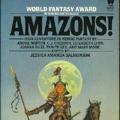radio-appears reviewed The Magicians by Lev Grossman
Hear Me Out:
So. Storytime. In my country, children are separated into different high schools at twelve years old, based on academical aptitude. At the highest level, there are two types of school, gymnasium and atheneum, with the only difference being that at a gymnasium they also teach Greek and Latin. That's the one I went to (not bragging, I was a very mediocre student). As you might imagine, the type of twelve-year old that chooses to go to a gymnasium usually isn't just smart, but also very driven to prove themselves academically. Many of us staked a lot of our self-esteem on our intelligence, especially if we didn't have a lot else going on, like also being athletic or socially gifted. We were all kind of used to being the smartest kid in the room, and then suddenly we weren't. Worse, there were always a couple of stand out, near genius level …
So. Storytime. In my country, children are separated into different high schools at twelve years old, based on academical aptitude. At the highest level, there are two types of school, gymnasium and atheneum, with the only difference being that at a gymnasium they also teach Greek and Latin. That's the one I went to (not bragging, I was a very mediocre student). As you might imagine, the type of twelve-year old that chooses to go to a gymnasium usually isn't just smart, but also very driven to prove themselves academically. Many of us staked a lot of our self-esteem on our intelligence, especially if we didn't have a lot else going on, like also being athletic or socially gifted. We were all kind of used to being the smartest kid in the room, and then suddenly we weren't. Worse, there were always a couple of stand out, near genius level students who were really only in that school because there wasn't anywhere higher for them to go to. So, what you get, is an entire school full of teenagers all simultaneously realising that the one trait they thought gave them value isn't actually all that special, while also dealing with the hormonal hell that is puberty.
Basically, what I'm saying is, I knew a lot of Quentins. Quite frankly, I was Quentin at times. I related very heavily to his character and really empathized with his struggles. Not because I thought his self-absorption, entitlement and disgust with mundanity were justified, but because I so deeply understood the insecurities those traits all stemmed from. I've been there, man.
And then I went online and found out that many readers absolutely hated his character and his personality ruined the books for them.
Well.
Always good to get an outside perspective.
But yeah, I really loved this book. Most of the characters are all kind of assholes with few redeeming traits (they get better in the sequels!) and magic isn't the fun escapism it usually is. It's an excellent deconstruction of both the worlds Hogwarts and Narnia present, which I honestly think is worthwhile for all fantasy fans to kind of ruminate on. Why do we so badly want to be whisked away to a school for special people with special powers that they very pointedly do not share with the rest of the world? Why do we want to live in a parallel world where we get to be kings and queens, and close personal friends with Jesus? We're not bad people for having these fantasies of being special and amazing, they're pretty much universal. But they're also something you need to let go of at a certain point in order to be happy as what you most likely are; an ordinary person with just as much of a right to rule a kingdom as anyone else. Taken as a whole, the series is a manifesto on the necessity of finding value in the life that exists when the adventure is over, to be happy with stability and mundanity, because nothing is so special you don't ultimately get used to it, and you can't find life satisfaction in continuing to chase the next big thrill. Satisfaction is not about getting everything you ever wanted, but about how to stop wanting when you have enough, which is what takes so long for Quentin to fully understand.



